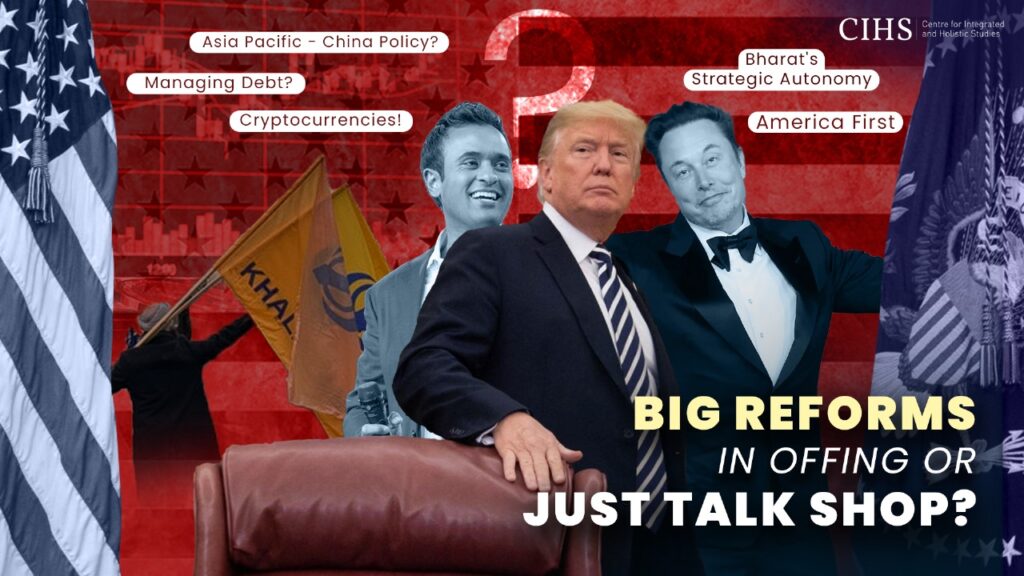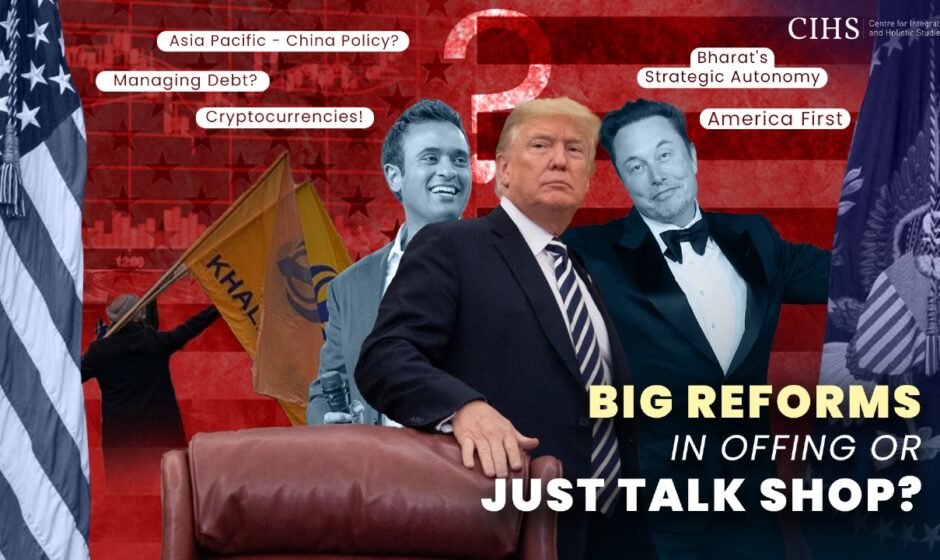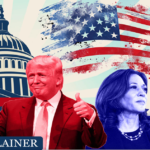Republican White House under President Trump will have to respect and partner with Bharat in sync with her ‘strategic autonomy’ framework.
K.A.Badarinath
Exuberance aside, Donald Trump is ready to don the mantle as 47th President, United States of America.
Trump’s return to White House has several messages for diverse stakeholders. While these groups grapple with the reality, there’s no denying that huge drama continues to unfold as transfer of power to Grand Old Party began.

After Republicans decisive show in the just concluded Presidential elections and democrats tasting big defeats, the new government takes shape to run this powerful country for four years.
Trump seems to be all out for tapping talent and leadership at the high table with cabinet berths and elsewhere.
For development hawks like me, picking Vivek Ramaswamy and Elon Musk to bring about structural reforms in governance is a big message to ‘one and all’. Belt tightening measures, living within one’s own earnings and limiting both public and private debt is something which would happen as consequence.
Unless belt-tightening measures are spelt, there are very limited options before President Trump to manage or sustain US $ 35.95 trillion piled up by October 2024.
More than the public and intra-government debt that’s hit the roof, speed with which its multiplying without any let up is all the more mind-boggling. Every hundred days, this debt goes up US $ one trillion and over 14 per cent of annual federal spending goes into servicing this debt.
In this backdrop, aggressive governance reforms to cut wasteful expenses, prune bureaucracy and reduce the flab are what’s paramount if US were to chart a sustainable socio-economic development policy framework for the future. Newly carved out Department of Government Efficiency under Musk and Indo-American entrepreneur Vivek Ramaswamy will have to chart this futuristic plan.
Down-sizing the US government by 2026 when the country would celebrate its 250-year of independence is something to watch out for. If serious efforts were to be made at governance reforms, healthy economic growth posted in last two quarters at 3 per cent and 2.7 per cent could act as right spring board. Better public debt and intra-government debt management would provide further impetus to the United States economy having implications far and wide.
Lesser regulations and revamping federal agencies is again governance reform. Most conversations relate to making crypto currencies regulation more attractive and mainstream these digital currencies. US Federal Reserve has been grappling for policy framework to deal with ‘unregulated’ crypto-currencies that are virtually outside the central bank’s domain. Globally an accepted governance framework is what was on the drawing board especially when the G-20 Presidents and Prime Ministers met in New Delhi a few months back.
Bharat along with Brazil and other large developing countries have had pushed for an agreed framework for crypto currencies. Digital rupee was found as an immediate alternative to cryptos that are not recognized as currency in Bharat nor can they be offered as collateral for any transaction.
President Trump’s policy towards crypto currencies will also have huge impact on global financial transactions and currencies managed by central banks. The move to ‘de-dollarize’ trade deals and make them happen in local currencies may gain momentum as discussed at recent BRICS summit. President Trump’s majority in both houses of US Parliament must be leveraged to push far and wide digitized dollar as immediate priority rather than tilting aggressively to cryptos before hammering a consensus on the policy framework with US partners. Crypto-currencies exposure or linkages with President Trump’s personal business empire may impact the US government’s possible policy shift on the issue.
On evolving a workable security blueprint, President Trump’s pick of national security advisor in Florida Congressman Michael Waltz has been widely reported. Unlike the Democrats who have been infiltrated by Lefties, President Trump may like to go lethal vis-à-vis China. Waltz antecedents as India caucus co-chair in the US and Trump’s own antipathy for anything China especially on trade front may provide enough impetus to both trade and security framework vis-à-vis China. US President-elect Trump had talked about huge tariffs up to 60 per cent against Chinese goods and services.
Well, his stated position on Indo-Pacific seeking to limit expansionist China, exposing the ‘unholy’ Pakistan – China nexus and Waltz pressing for strategic security partnership with India may turn music for Bharat’s lovers. One will have to await the new security doctrine and blueprint to be churned out by the President’s new team that will have large implications for Bharat.
It will never be honky dory with President Trump all the way even for US closest partners. His policy would centre on ‘give and take’ that’s termed ‘transactional’ by his detractors and staunch supporters. His America First policy towards trade, investments, security and outlook is mostly on the lines of ‘Bharat First’ adopted as a belief, doctrine and work programme by Prime Minister Narendra Modi. Trade engagement that’s hugely in favour of Bharat in annual engagement of US $ 150 billion may be leveraged to ‘extract his pound of flesh’ if past experience is any indication.
From Bharat’s perspective, be it democrats or republicans, she has to be on her own. New Delhi’s engagement with President Trump should be on ‘equitable’ terms as partners rather than being viewed as subservient low creature. President Trump cannot ignore the new reality of ‘a rising Bharat’ that has adopted ‘strategic autonomy’. He needs to respect and partner with this new world power as Russian President Vladimir Putin has described. President Trump cannot dismiss Bharat’s ‘strategic autonomy’ doctrine as done by the out-going Democratic White House led by Joe Biden.
(Author is Director and Chief Executive, Centre for Integrated and Holistic Studies, a New Delhi based non-partisan think tank)



